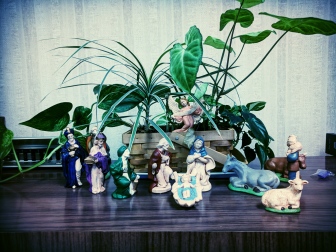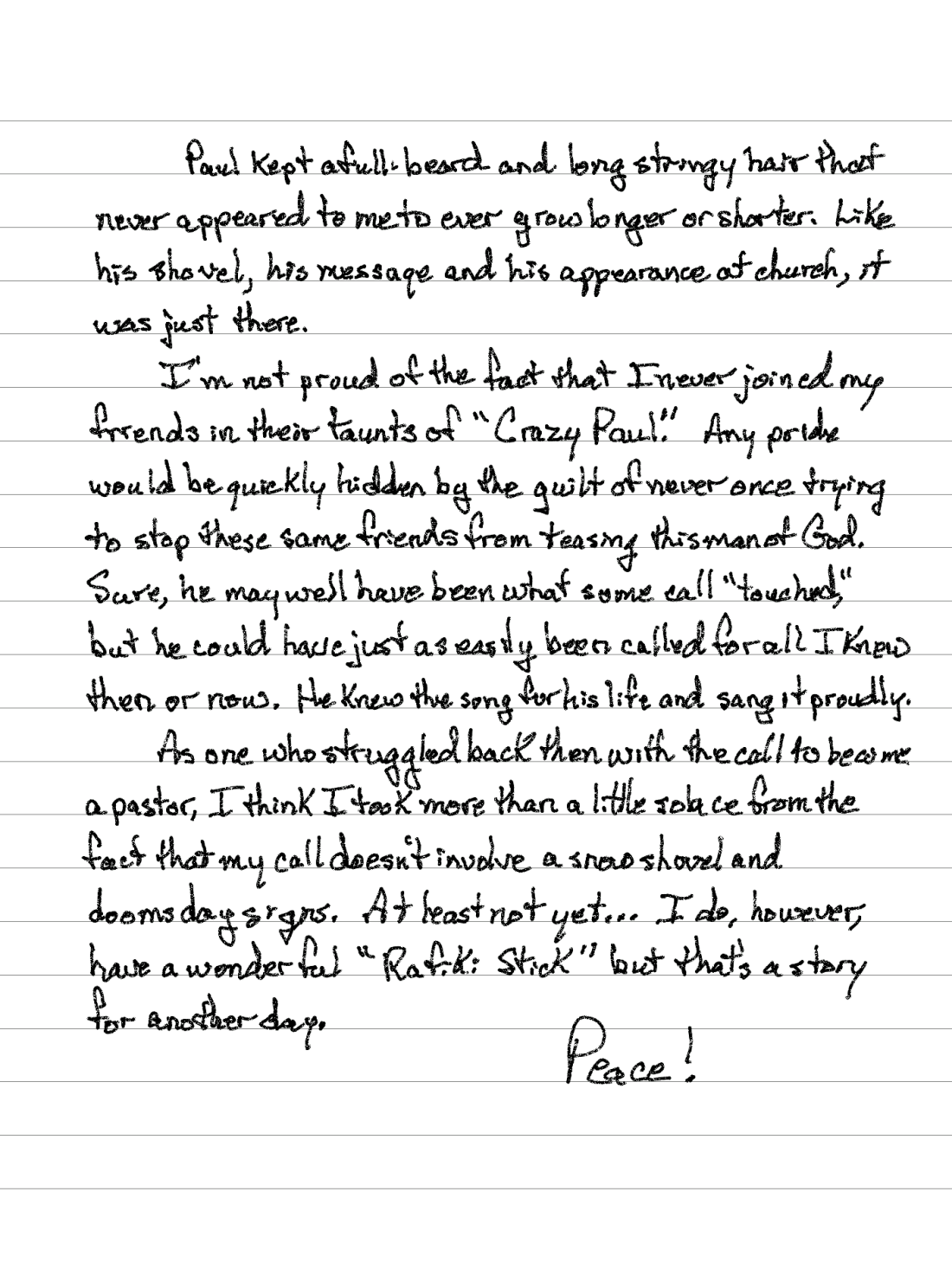A few days ago I got a box out of the closet in the corner of my office. The faded markings on a address on the box, covered by several layers of packing tape indicated I received the contents while serving in Kincaid, WV as a student pastor in the United Methodist Church. I lived near the church in Kincaid, served a second church in Mossy and attended what was then called West Virginia Institute of Technology. That school, like a couple other of my alma maters, has since either closed or been relocated. It’s hard to tell which from their name and new location. If anyone asks, I tell them I graduated from WV Tech which is a little ironic for a guy who knew his next step in life would be a theological education. Then again it would explain why I justify writing my devotions, studies, blogs and even sermons on electronic paper when creating my “SFD”. (Writers and fans of Ann Lamont will get that. Others won’t want to know.)
That box at some point in time held a hot air popcorn popper but I don’t remember having one of those so I reckon the contents that are currently there were shipped to me in this container. The label says it was delivered to a post office box in Kincaid. Yes. I had one of those but the number meant nothing to me even after seeing it in writing. The postmark is dim that I can’t make out the date but I’m guessing the late 80’s or early 90’s. I’m not so dim as to forget when I went to whatever the name of that school was.
The box isn’t all that important. Nor the mailing label for that matter. But they were interesting to me. In a way they remind me that the contents and I relocate from time to time. We’ve traveled quite a few miles this box and I.
 Inside it are ceramic figures of a sheep, a donkey, an ox (not to any kind of scale, mind you, because I’ve seen an ox and they are scary big) as well as a camel that has been glued together more than once. An angel is in there too as well as three suspiciously Anglo looking “Wise Men from the East” and equally White looking shepherd, Joseph, Mary and baby Jesus. Don’t ever tell me that we don’t allow culture to influence our “pure biblical religion.” I will just ask you to show me your nativity set or a copy of the latest Christmas card you bought with a scene of Jesus’ birth on it.
Inside it are ceramic figures of a sheep, a donkey, an ox (not to any kind of scale, mind you, because I’ve seen an ox and they are scary big) as well as a camel that has been glued together more than once. An angel is in there too as well as three suspiciously Anglo looking “Wise Men from the East” and equally White looking shepherd, Joseph, Mary and baby Jesus. Don’t ever tell me that we don’t allow culture to influence our “pure biblical religion.” I will just ask you to show me your nativity set or a copy of the latest Christmas card you bought with a scene of Jesus’ birth on it.
We all make Jesus fit into our culture at times. It’s what we do as humans. Actually, it’s what the Son of God had to do to become one of us as well.
I carefully placed this suspect nativity set on the credenza in my office using some plants left over from my Dad’s funeral a couple of years ago as a back drop. I didn’t think much about the racial and theological implications of the pieces while I was placing them. I handled each one with care because I didn’t want to get the glue out again and because each one kindles in me a love for the group of people who got together decades ago and hand painted each one of these figurines.
I attended United Methodist Temple in Beckley, WV as a youth and young adult. They had a tradition of giving one piece of this set to each child as they grew up among them. When the occasion arose that they had some outlier like me who came late to the party, then they would send them an entire set when they went off to college or left home for whatever reason. The thing is that I knew that these pieces were labors of love. The people who painted and sent them to me were my last true church “home.” I have loved and have been loved by every congregation I’ve served but the fact is that I came out of Temple.
These were my people.
These were my people giving me a gift.
These were my people giving me a gift to remind me of the Incarnate nature of Jesus.
Every year I put them out and remember. Every year I put them away in the same box, with the same styrofoam popcorn – just caught that irony there of the box and the packing popcorn – and I remember the care taken to make sure I got them.
And I take them with me. Always.
Peace!
#ReThinkAdvent
#UnwrapChristmas




 patient slept
patient slept
 On Tuesday of this week, overwhelmed with preparations for Annual Conference, I set out for an afternoon walk around the campus of West Virginia Wesleyan College. A rain storm changed my plans, and I shortly found myself nestled in the quiet of the Meditation Chapel. For the first time all week, I allowed my mind to wander and settle into the familiar thoughts that seemed to consume me these days.
On Tuesday of this week, overwhelmed with preparations for Annual Conference, I set out for an afternoon walk around the campus of West Virginia Wesleyan College. A rain storm changed my plans, and I shortly found myself nestled in the quiet of the Meditation Chapel. For the first time all week, I allowed my mind to wander and settle into the familiar thoughts that seemed to consume me these days.